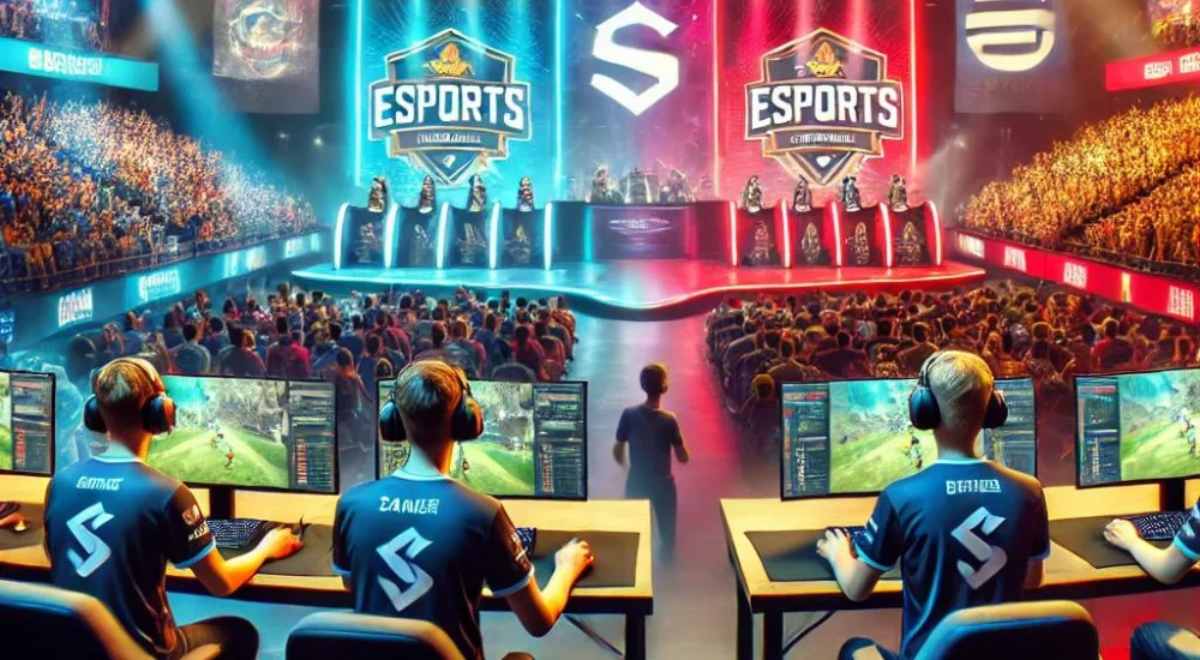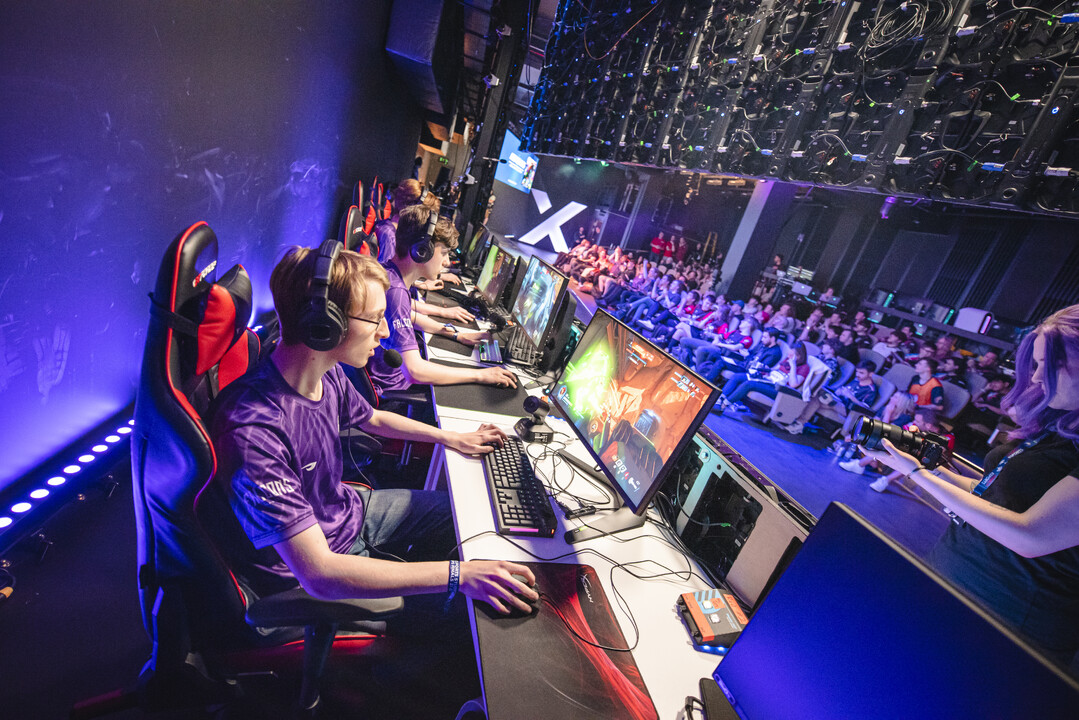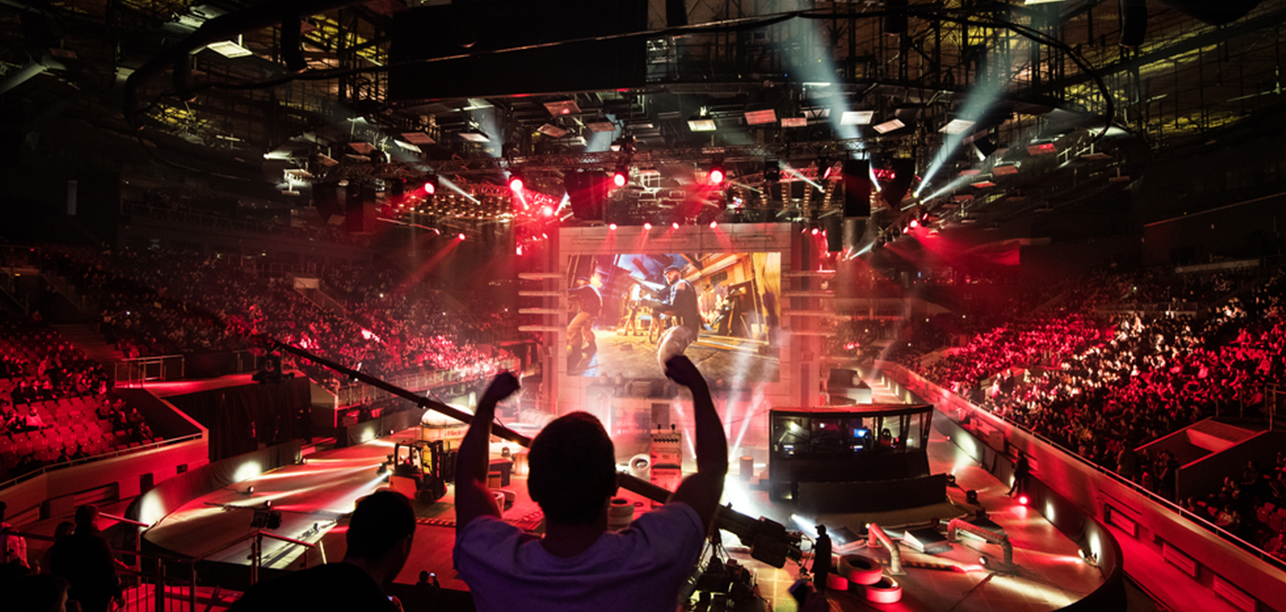
How Traditional Sports Are Investing in Esports
The emergence of esports has revolutionised the sports industry. As digital gaming becomes a mainstream form of entertainment, traditional sports organisations recognise its immense potential. This article explores how conventional sports are making significant investments in esports and the strategies they are using to succeed. From the evolution of NBA and FIFA esports leagues to the broader implications of this trend, we’ll uncover how traditional sports are embracing gaming.
This fusion of sports and esports is not a passing trend. It is a strategic move to engage younger audiences, generate new revenue streams, and adapt to the rapidly changing sports landscape. Let’s dive into the reasons behind these investments and their long-term impact.

Quick Guide: Building a Winning Esports Strategy for Traditional Sports Organisations
Why This Matters: The Importance of Esports in Traditional Sports
Esports is rapidly growing and presents a unique opportunity for traditional sports teams to diversify their offerings, engage with younger demographics, and open new revenue streams through digital platforms.
Step-by-Step Guide to a Successful Esports Strategy
Start by understanding the esports ecosystem, collaborating with key players, and establishing a unique brand identity for your esports team. Focus on recruiting top talent and leveraging platforms like Twitch and YouTube for maximum fan engagement.
Why This Matters: The Key Benefits
The integration of traditional sports and esports has profound implications. Here’s why this movement is significant:
1. Engaging New Audiences
Esports attract younger demographics, primarily millennials and Gen Z. Traditional sports organisations are investing in esports to reach these tech-savvy fans and ensure their long-term relevance.
2. Diversifying Revenue Streams
The esports industry generates billions in revenue through sponsorships, digital content, and merchandise. By entering esports, traditional sports teams can expand beyond ticket sales and broadcasting rights.
3. Enhancing Brand Image
Sports brands that embrace esports appear innovative and forward-thinking. This move strengthens their market position and opens doors to collaborations with tech companies and gaming platforms.
Real-World Examples & Data-Backed Insights
Several traditional sports organisations have already made substantial moves into esports:
- NBA 2K League: A professional esports league where teams are affiliated with real NBA franchises.
- FIFA eWorld Cup: A premier esports event that attracts millions of global viewers.
These initiatives demonstrate how traditional sports are leveraging gaming to drive engagement and business growth.
Pro Tip:
Form partnerships with established esports teams or platforms to gain valuable expertise and resources, just like the NBA’s collaboration with Take-Two Interactive for the NBA 2K League.

Step-by-Step Guide for Entering Esports
Step 1: Conduct Market Research
Understanding the esports ecosystem is crucial. This involves analysing trends, key players, and audience preferences to identify opportunities and challenges.
Step 2: Identify Strategic Partnerships
Collaborating with established esports teams or platforms provides traditional sports organisations with expertise and resources. The NBA’s partnership with Take-Two Interactive for the NBA 2K League is an excellent example.
Step 3: Develop a Unique Esports Brand
A strong brand identity is essential for success in esports. This includes designing a dedicated esports team with a distinctive name, logo, and social media presence.
Step 4: Invest in Talent Development
Competitive esports teams require skilled players and proper training facilities. Investing in talent ensures sustained success in the gaming arena.
Step 5: Leverage Digital Platforms
Utilising platforms like Twitch, YouTube, and social media enhances engagement. Live streaming, interactive content, and behind-the-scenes footage help build a loyal fan base.
Important:
It’s crucial to balance traditional sports and esports activities to maintain a diverse fan base and ensure that the core audience is not neglected in the pursuit of digital expansion.
Expert Tips & Common Mistakes to Avoid
Best Practices Beyond the Basics
- Stay Updated with Technology: Esports evolves rapidly, so staying informed about new gaming trends is essential.
- Engage with the Esports Community: Actively participating in forums, events, and fan discussions fosters loyalty and brand credibility.
Common Pitfalls
- Underestimating Esports Complexity: Success in esports requires more than just financial investment. A well-defined strategy is crucial.
- Neglecting Traditional Sports Fans: Balancing traditional sports and esports activities is essential to maintaining a diverse fan base.
Advanced Insights & Industry Recommendations
Cross-Promotional Opportunities
Traditional sports and esports can work together through joint events, bundled ticket packages, and shared sponsorships to enhance engagement.
Innovative Sponsorship Models
Esports offers unique advertising opportunities such as in-game branding and virtual merchandise, which traditional sports teams can leverage.
Esports as a Recruitment Tool
Some sports teams use esports to identify potential athletes with transferable skills like teamwork, strategy, and decision-making.
The Role of Data Analytics
Advanced analytics provide insights into player performance, audience behaviour, and market trends, helping organisations optimise their esports strategies.
Frequently Asked Questions (FAQ)
Why are traditional sports investing in esports?
Traditional sports organisations are investing in esports to attract younger audiences, diversify revenue streams, and adapt to the digital era of entertainment.
How do traditional sports teams make money from esports?
They generate revenue through sponsorships, digital content, tournament winnings, merchandise sales, and brand partnerships.
What are some examples of traditional sports entering esports?
Notable examples include the NBA 2K League, FIFA eWorld Cup, Formula 1 Esports Series, and football clubs launching esports divisions.
Can esports replace traditional sports?
While esports is growing rapidly, it complements rather than replaces traditional sports. Both industries can coexist and benefit from mutual collaboration.
How can traditional sports fans benefit from esports?
Esports introduces new entertainment formats, interactive experiences, and opportunities for fans to engage with their favourite teams in digital environments.
How can traditional sports teams build a successful esports presence?
By conducting market research, forming strategic partnerships, investing in talent, and leveraging digital engagement platforms, traditional sports teams can establish a strong esports presence.

Traditional Sports in Esports: A Game-Changing Evolution
The investment of traditional sports in esports signals a major shift in the sports industry. This integration has created new revenue streams and engagement models, proving that the future of sports is digital.
For sports organisations considering esports, now is the time to act. By adopting a strategic approach, they can lead the way in this evolving landscape. The barriers between conventional sports and esports are diminishing, and the opportunities for innovation are limitless.
What are your thoughts on this growing trend? Share your insights and join the conversation!


